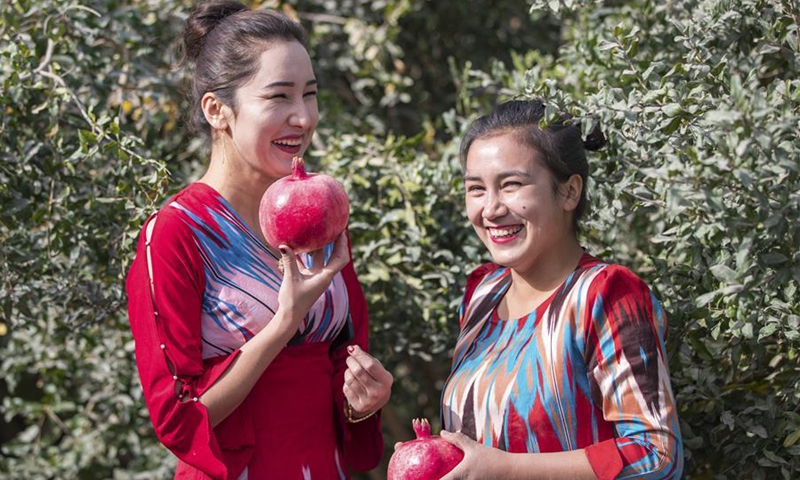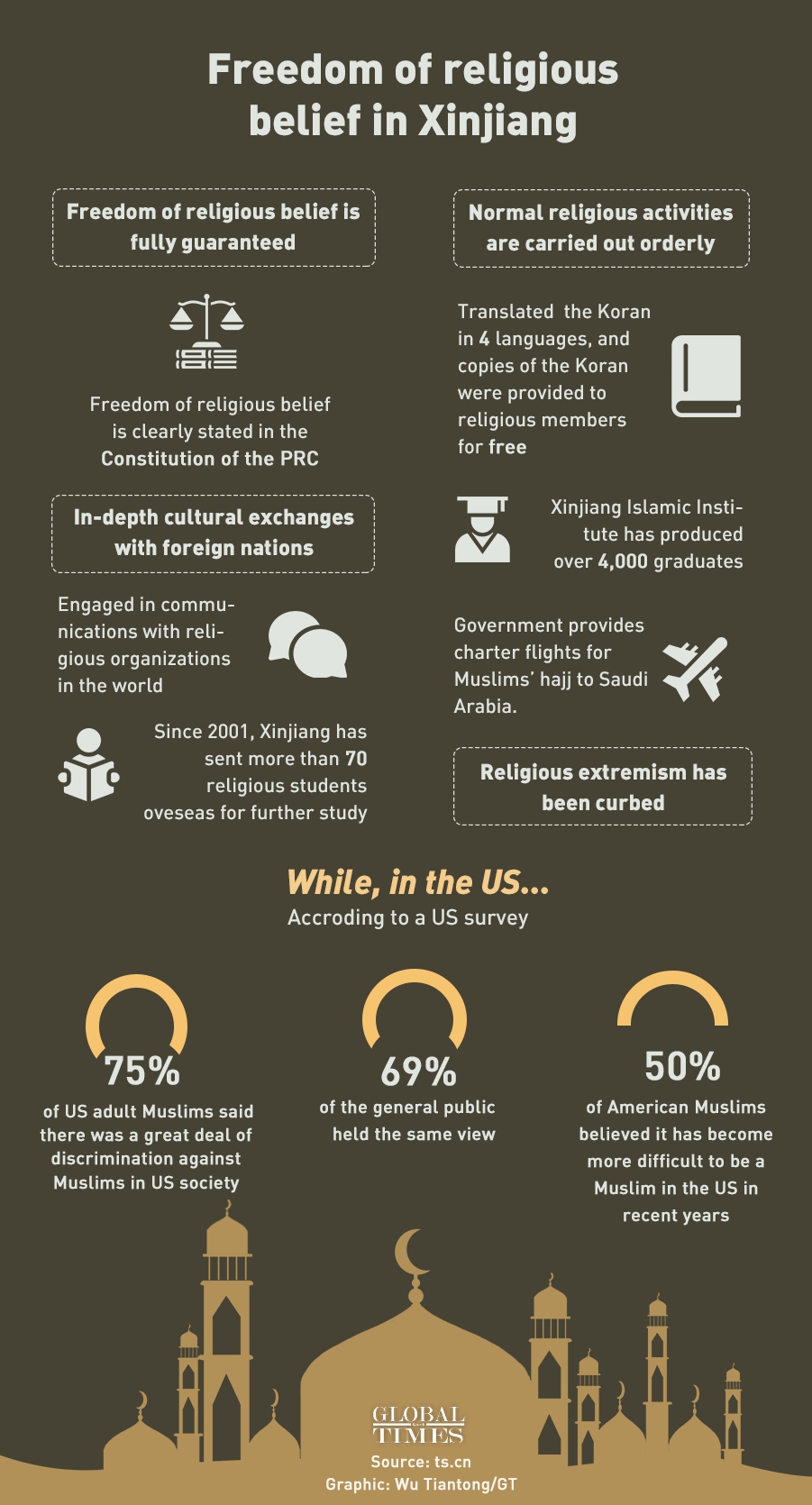Islamic group in Xinjiang rebukes Western claims on religious restrictions
By Cao Siqi Source: Global Times Published: 2020/11/3 19:18:41

Farmers pick megranates in Pishan County of Hotan, Northwest China's Xinjiang Uygur Autonomous Region. In summer and autumn, the vast land in Xinjiang embraces the harvest season. Photo:Xinhua
Formulating regulations on religious venues and activities, renovating mosques for safety and better living environment, translating religious books for in-depth learning, respecting eating habits and social customs, supporting foreign exchanges, all these solid facts are a vivid rebuke to recent claims of "restricting freedom of religious belief" spread by anti-China forces from the US and other Western countries.Dismissing accusations against China of depriving ethnic minorities' right to religious belief, demolishing mosques by force, and persecuting religious figures, the Islamic Association of Northwest China's Xinjiang Uygur Autonomous Region on Tuesday released a report to show the real situation of freedom of religion in the region grounded on its own experience.
The report comes amid chaos in Europe, where there has been a resurgence in attacks by radical Islamists in France, home to Europe's largest Muslim population, as well as indications that the attacks in Vienna may also have been carried out by Islamic terrorists.
Chinese religious experts said that the report highlighted the country's efforts in respecting and safeguarding religious beliefs. More importantly, it proves that sinicization is an important way to prevent religious freedom from being abused and manipulated to become an anti-social ideological trend, or even a campaign.
The 2,000-word report stresses that "all the mosques across Xinjiang enjoy the right to establish democratic management organizations, manage their internal affairs, organize and conduct religious activities, receive donations, manage and use property, and initiate public welfare programs."
It also says that Muslims' dietary habits, festivals, wedding and funeral practices, and customs and rituals are respected in Xinjiang. During the festival of Ramadan this year, which happened amid the COVID-19 epidemic, the local government arranged medical staff to provide services at mosques, supply face masks and medicine, take temperatures and disinfect the facilities regularly, while providing worshippers with tea, naan and fruit for iftar.
Especially in response to West's long-standing hype and misunderstanding of "demolishing mosques by force," the association emphasized that there are many mosques built in the 1980s and 1990s of last century or even earlier in Xinjiang, some of which were formed of mud bricks, or were rundown, narrow and small, or were in disrepair. That has made them unsafe for religious activities, especially under harsh weather conditions, and even posed a serious threat to the safety of Muslims if an earthquake hits.
Therefore, in recent years, local governments fully took Muslims' appeals and applications into consideration, and they solved the problem of dilapidated mosques with more rational layouts through rebuilding, relocating and expanding them in the renovation of shantytowns and building beautiful villages in line with local urban-rural development plans. The conditions of mosques have been improved across the board: Mosques have been equipped with running water, electricity, natural gas, radio and communications facilities. Roads leading to mosques have been improved, and medical and public services have been extended to mosques, greatly facilitating prayers by Muslim people.

Infographic: GT
The report also illustrates the government's efforts to satisfy their demand for religious knowledge, improve their working and teaching conditions, ensure safe and orderly pilgrimages, curb religious extremism and support foreign exchanges.
"Freedom of religious belief is protected by law in China. But it does not mean freedom of religious belief can be abused for non-religious purposes - advocating and encouraging any anti-social thoughts and campaigns," Yan Kejia, director of the Shanghai Academy of Social Sciences' Institute of Religious Studies, told the Global Times on Tuesday.
Such thoughts are enemy to any religion, Yan said, noting that the path of sinicization is of great significance to prevent religions from being coerced into anti-social ideas.
The US itself is plagued with serious religious discrimination. In 2017, President Trump signed a "Muslim Ban", which aroused opposition from the international community.
According to a relevant survey of the US, 75 percent of US adult Muslims said that there was a great deal of discrimination against Muslims in American society, and 69 percent of the general public held the same view. Further, 50 percent of American Muslims believed it has become more difficult to be a Muslim in the US in recent years.
RELATED ARTICLES:
Posted in: SOCIETY,CHINA FOCUS